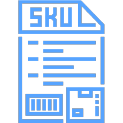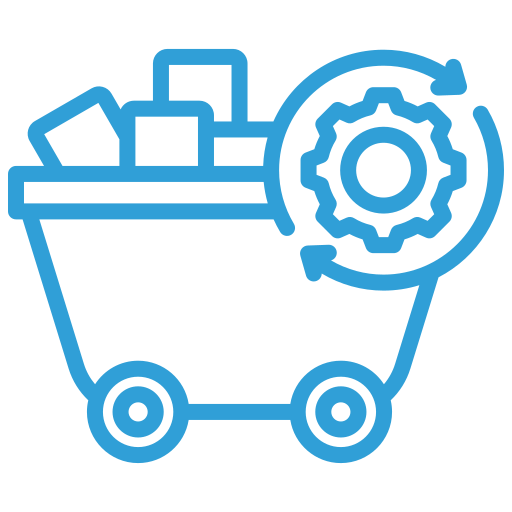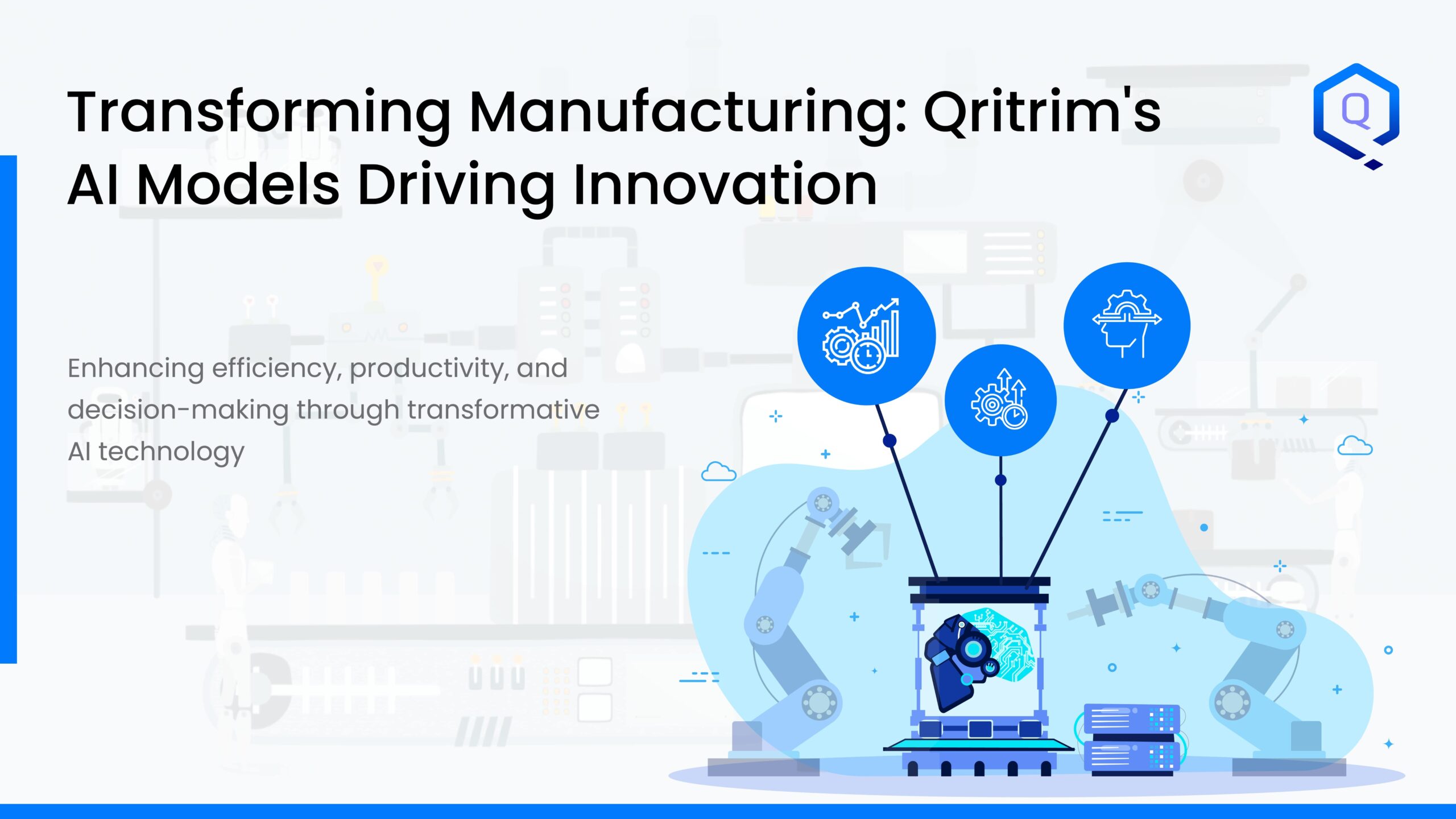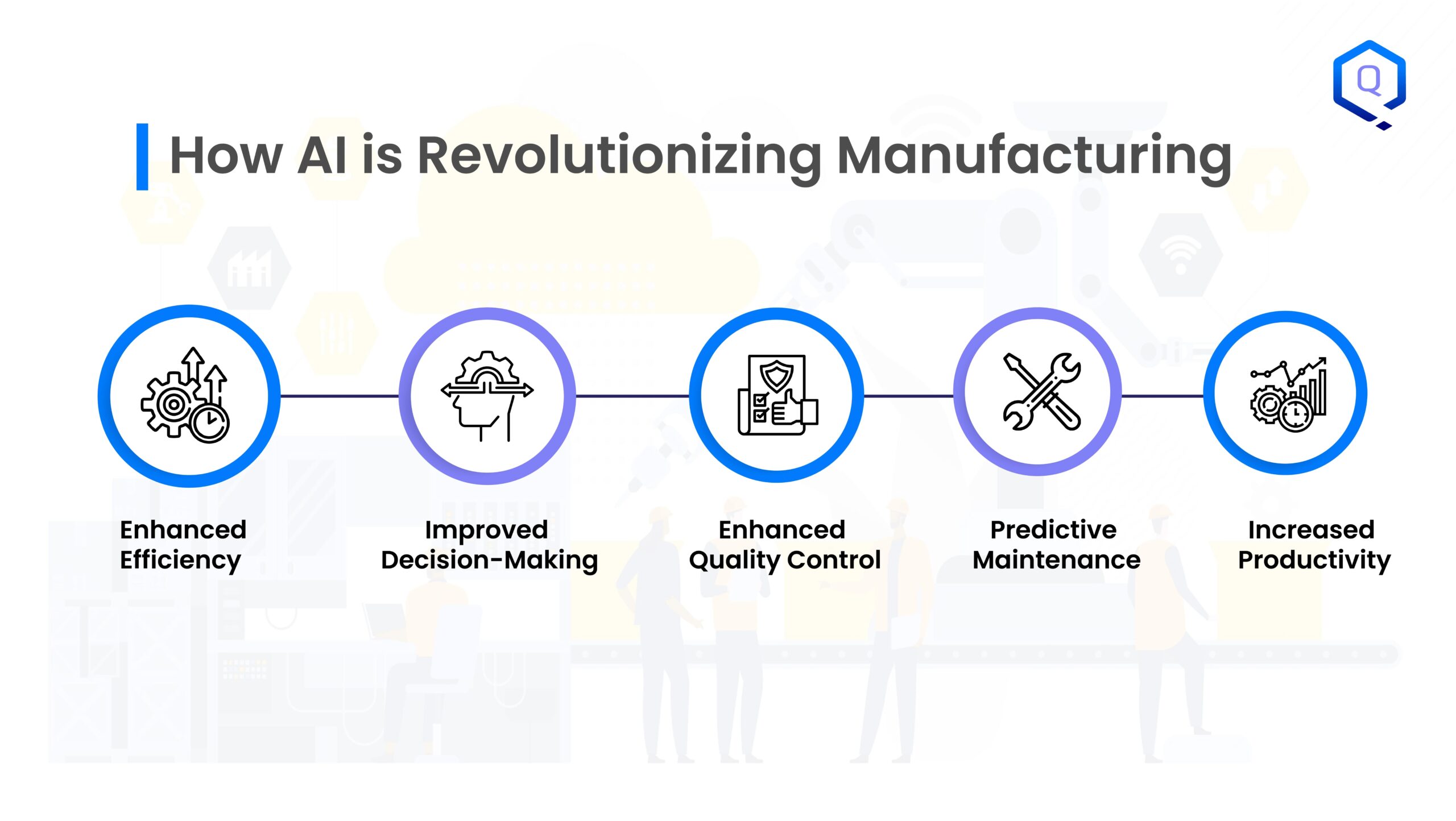Supply Chain Management:
AI can optimize supply chain operations within the manufacturing industry. By leveraging advanced analytics and machine learning algorithms, it is enabling manufacturers to analyze vast amounts of data to improve inventory management, supplier selection, and logistics efficiency. This enhances visibility, responsiveness, and cost-effectiveness across the supply chain.
Example: A consumer electronics manufacturer utilizes AI to optimize its supply chain operations. By analyzing historical sales data and market trends, AI algorithms predict demand fluctuations, enabling the company to adjust production schedules and inventory levels accordingly. This proactive approach minimizes stockouts, reduces excess inventory, and improves overall supply chain efficiency.
Predictive Maintenance:
We already talked about how AI-powered predictive maintenance is revolutionizing how manufacturing plants monitor and maintain equipment. Using historical data and real-time sensor data, AI algorithms can predict equipment failures before they occur to avoid costly downtime and improve operational efficiency.
Example: A food processing plant implements AI for predictive maintenance on its production equipment. By monitoring sensor data in real-time, AI algorithms detect anomalies and predict potential equipment failures before they occur. This allows the plant to schedule maintenance tasks during planned downtime, minimizing disruptions to production and ensuring continuous operation.
New Product Development:
AI can drive innovation in new product development in the manufacturing industry. By analyzing market trends, customer preferences, and competitor analysis, AI empowers manufacturers to design products that resonate with consumers. From ideation to prototyping, AI enhances the entire product development lifecycle, leading to the creation of innovative products.
Example: An automotive manufacturer utilizes AI to enhance new product development. By analyzing customer feedback and competitor data, AI algorithms can identify market trends and consumer preferences. This enables the company to design and prototype innovative vehicles that meet the evolving demands of consumers, driving market share and revenue growth.
Performance Optimization:
AI-driven performance optimization can improve operational efficiency and minimize downtime within manufacturing processes. Analyzing historical data and real-time sensor data, AI algorithms can identify patterns and detect anomalies. Make data-driven predictions, informed decision-making and streamlined operations.
Example: A pharmaceutical company integrates AI into its manufacturing processes to optimize performance. By analyzing production data and equipment performance metrics, AI algorithms can identify inefficiencies and bottlenecks in the production line. This allows the company to streamline operations, improve throughput, and reduce production costs, ultimately enhancing overall productivity.
Quality Assurance:
By employing computer vision and machine learning algorithms, AI can inspect products for defects, anomalies, or non-conformities with exceptional precision, ensuring adherence to quality standards and minimizing waste.
Example: A medical device manufacturer employs AI-driven quality assurance to ensure product quality and compliance. By using computer vision algorithms, AI inspects medical devices for defects and anomalies with exceptional accuracy. This rigorous quality control process minimizes the risk of product recalls and maintains high standards of safety and efficacy.
Streamlined Paperwork:
AI can automate paperwork processes in manufacturing operations. It reduces manual tasks, errors, and inefficiencies. By employing intelligent bots equipped with AI capabilities, manufacturers can extract data from documents, classify information, and enter it into appropriate systems, streamlining operations and ensuring accuracy.
Example: A pharmaceutical company automates paperwork processes using AI-powered bots. These bots extract data from regulatory documents, classify information, and enter it into compliance systems. By automating manual data entry tasks, the company reduces errors, improves data accuracy, and ensures compliance with regulatory requirements.
Demand Prediction:
AI-powered demand prediction can optimize inventory management and production planning within the manufacturing industry. By analyzing historical sales data, market trends, and external factors, AI algorithms can provide accurate demand forecasts, enabling manufacturers to adjust production accordingly and optimize inventory levels.
Example: A consumer goods manufacturer leverages AI for demand prediction. By analyzing sales data and social media trends, AI algorithms forecast demand for various products. This enables the company to optimize inventory levels, reduce stockouts, and meet customer demand more effectively, ultimately enhancing customer satisfaction and loyalty.
How Qritrim’s Custom AI Models Transform Manufacturing:
Qritrim’s is offering AI models that can change the game for the manufacturing industry. They’re like finely tuned instruments. Specifically designed to tackle the unique challenges faced by manufacturing businesses. These models help in every aspect of manufacturing, right from managing supply chains to predicting maintenance needs and ensuring product quality. Using smart algorithms, Qritrim’s AI models help manufacturers work smarter, not harder throughout the production process.
Qritrim is working in conjunction with AI Models and ADI, which stands for Artificial Domain Intelligence. Think of ADI as the brains behind the operation. It provides specialized knowledge and insights tailored to the manufacturing world, making sure that these models are perfectly suited to each company’s needs. With ADI’s help, these models can tackle even the toughest manufacturing problems, delivering solutions that fit like a glove.
Why Invest in Qritrim’s AI Models for Manufacturing:
Investing in Qritrim’s AI Models is like giving your manufacturing business a powerful tool that works like magic. These models are precision-engineered to hit the mark every time. They align perfectly with your company’s goals and objectives. And with ADI in the mix, you get an extra layer of intelligence. This ensures your AI solutions are always on point.
With Qritrim’s AI Models and ADI by your side, you’ll see promising improvements across the board. From better decision-making to increased efficiency and accuracy, these models are the secret sauce to success. Let us know if you to learn more about in Qritrim’s AI Models to take your manufacturing business to greater heights!
Final Say: A recent report by MarketsandMarkets predicts that the global market will grow at a compound annual growth rate (CAGR) of 45.6% until 2028, reaching $20.8 billion. The manufacturing industry is being transformed by AI, and Qritrim’s AI models enable you to lead the way. By utilizing AI technology, manufacturing businesses can optimize their processes, increase productivity, and keep a competitive edge. With Qritrim’s customized AI solutions, manufacturing excellence is attainable, enabling organizations to thrive in an era of technological advancement and innovation.





























